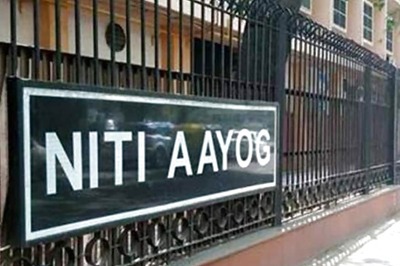
views
Stockholm: Canadian Alice Munro won the Nobel Prize for Literature on Thursday for her tales of the struggles, loves and tragedies of women in small-town Canada that made her what the award-giving committee called the "master of the contemporary short story."
"Some critics consider her a Canadian Chekhov," the Swedish Academy said, comparing her to the 19th-century Russian short story writer in a statement on its website.
Munro, reached by CBC Television in Victoria, British Columbia, said she hoped the award "would make people see the short story as an important art; not just something you played around with until you get a novel written."
The 82-year-old, who revealed in 2009 that she had undergone coronary bypass surgery and been treated for cancer, said however that she did not think winning the prize would change her decision announced early this year to stop writing.
"You know, I was always thrilled at whatever came along - like if I got published, I was thrilled. I still am, in a way," she told the CBC in a phone interview.
Munro, who was awarded the prize of 8 million crowns by the committee, said her daughter woke her up to give her the news.
"It just seems impossible. It seems so splendid a thing to happen, I can't describe it. It's more than I can say."
The short story, a style more popular in the 19th and early 20th century, has long taken a back seat to the novel in popular tastes. Short stories tend to be set in a more concentrated time frame with a more limited number of characters.
Munro's merit, in the eyes of her admirers, was to introduce into the her stories a richness of plot and depth of detail usually more characteristic of novels.
The characters in her stories are often girls and women with seemingly unexceptional lives, who struggle with tribulations ranging from sexual abuse and stifling marriages to repressed love and the ravages of aging.
"This is someone who's not setting her stories in a dramatic place, a dramatic landscape," her longtime editor and publisher Douglas Gibson said in a CBC interview.
"Suddenly you find yourself being fascinated by the life of this chambermaid, or this bean farmer, or this Vancouver housewife. Again, these are ordinary people, ordinary stories, but she has the magic."
Given that Munro has long been suggested as a candidate for the award, Gibson said he got up early and dressed just in case.
"It was a little bit like Christmas Eve. I was a kid, I couldn't sleep, because - would Santa come? And Santa came," he said.
The award triggered an outpouring of pride in Canada, with Prime Minister Stephen Harper tweeting his congratulations.
Munro started writing stories in her teens and has published more than a dozen short story collections over the years. Her works include "The View from Castle Rock" in 2006 and "Too Much Happiness" three years later.
She becomes the second Canadian-born writer to win the prize, although she is the first winner to be thought of as distinctly Canadian. Saul Bellow, who won the award in 1976, was born in Quebec but raised in Chicago and is widely considered an American writer.
"Her texts often feature depictions of everyday but decisive events, epiphanies of a kind, that illuminate the surrounding story and let existential questions appear in a flash of lightning," the Nobel Academy said in appraising Munro.
That sentiment was echoed by fellow Canadian writer Margaret Atwood, who described Munro in a 2008 tribute as being among the major writers of fiction in our time.
"Munro has been among those writers subject to periodic rediscovery, at least outside Canada. It's as if she jumps out of a cake - Surprise! - and then has to jump out of it again, and then again," Atwood wrote.
"Readers don't see her name in lights on every billboard. They come across her as if by accident or fate, and are drawn in, and then there is an outbreak of wonder and excitement, and incredulity - Where did Alice Munro come from? Why didn't anybody tell me? How can such excellence have sprung from nowhere?"
American author Joyce Carol Oates, writing in 2009 in the New York Review of Books, said of Munro:
"Of writers who have made the short story their metier, and whose accumulated work constitutes entire fictional worlds... Alice Munro is the most consistent in style, manner, content, vision.
"Munro has...concentrated upon provincial, even back country lives, in tales of domestic tragicomedy that seemed to open up, as if by magic, into wider, deeper, vaster dimensions."
Munro herself spoke of the phenomenon of the short story and its place in the shadows of the novel in an interview with the New York Times in July. Her short stories, because of their richness, have often been called "novels in miniature," a notion she rejects.
"While working on my first five books, I kept wishing I was writing a novel," she said.
"I thought until you wrote a novel, you weren't taken seriously as a writer. It used to trouble me a lot, but nothing troubles me now, and besides there has been a change. I think short stories are taken more seriously now than they were."
The literature prize is the fourth of this year's crop of Nobel prizes, which were established in the will of Swedish dynamite inventor Alfred Nobel and awarded for the first time in 1901.

















Comments
0 comment